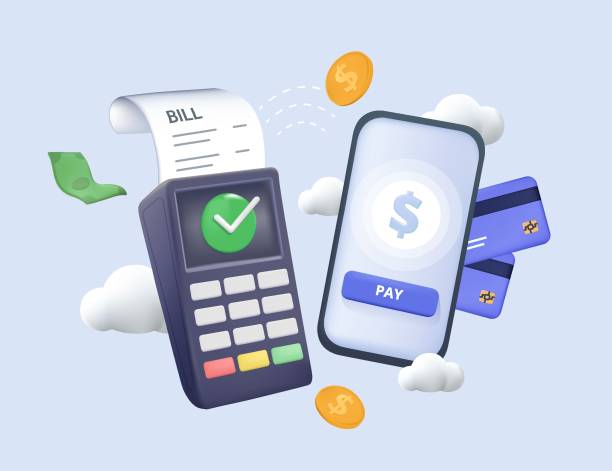In the vast and dynamic realm of e-commerce, two platforms have emerged as frontrunners, each offering unique benefits and opportunities for sellers: Selling on Etsy vs Shopify. With millions of users and a plethora of success stories, it’s no wonder that entrepreneurs often find themselves at a crossroads when deciding between these two giants. So, let’s delve deep into the world of online selling and uncover which platform reigns supreme: Etsy or Shopify.
The Etsy Advantage:
Etsy, often hailed as a haven for artisans and crafters, boasts a community of over 90 million buyers actively seeking unique, handmade, and vintage products. What sets Etsy apart is its emphasis on creativity and individuality. For sellers with niche products or a distinct brand identity, Etsy provides a platform to showcase their offerings to a targeted audience passionate about supporting independent creators.
One of the key attractions of Etsy is its built-in audience. With millions of visitors browsing the platform daily, sellers have the advantage of tapping into a ready-made customer base without investing heavily in marketing efforts. Additionally, Etsy’s user-friendly interface and intuitive search algorithms make it easier for buyers to discover new products, further amplifying exposure for sellers.
Moreover, Etsy simplifies the selling process by handling payment processing and providing shipping labels, easing the burden on sellers and allowing them to focus on what they do best: creating. The platform’s robust seller tools, including analytics and marketing features, empower sellers to track their performance and optimize their listings for maximum visibility and sales.

The Shopify Solution:
On the other end of the spectrum lies Shopify, a versatile e-commerce platform catering to businesses of all sizes. Unlike Etsy, Shopify offers complete autonomy and customization, allowing sellers to create their own branded storefronts tailored to their unique vision. This flexibility is particularly advantageous for entrepreneurs looking to establish a distinct brand identity and cultivate customer loyalty.
Shopify’s extensive suite of tools and integrations enables sellers to expand their online presence beyond just a storefront. From customizable themes and plugins to comprehensive inventory management and order fulfillment solutions, Shopify empowers sellers to scale their businesses seamlessly as they grow. Furthermore, Shopify’s robust analytics and reporting features provide invaluable insights into customer behavior and sales performance, enabling data-driven decision-making and optimization strategies.
Another key advantage of Shopify is its scalability. As a seller’s business expands, Shopify offers the flexibility to seamlessly integrate additional sales channels, including social media platforms and marketplaces, diversifying revenue streams and reaching a broader audience. Moreover, Shopify’s dedicated app store offers a plethora of third-party apps and integrations to further enhance functionality and streamline operations, making it a one-stop solution for ambitious entrepreneurs.

Target Audience and Market Focus:
Etsy and Shopify cater to distinct audiences within the e-commerce landscape, each with its own unique characteristics and preferences.
Etsy:
Etsy’s primary audience consists of consumers seeking unique, handmade, and vintage products. This platform appeals to individuals who value craftsmanship, authenticity, and supporting independent creators. Etsy’s community-driven ethos fosters a sense of connection between buyers and sellers, making it an ideal destination for those looking for one-of-a-kind items with a personal touch.
Shopify:
Shopify’s target audience encompasses a broad spectrum of entrepreneurs and businesses seeking to establish or expand their online presence. From small startups to established brands, Shopify caters to sellers across various industries and sectors. Unlike Etsy, Shopify appeals to sellers looking to create their own branded storefronts and exercise complete control over their online business.
Market Niches and Product Categories:
Etsy:
Etsy excels in niche markets and specialized product categories where creativity and craftsmanship are valued. Some of the most successful niches on Etsy include:
- Handmade Crafts: Artisanal jewelry, pottery, textiles, and woodworking.
- Vintage Goods: Retro clothing, antique home decor, and collectibles.
- Personalized Gifts: Customized items such as engraved jewelry, monogrammed accessories, and bespoke artwork.
- Art and Illustration: Handmade paintings, prints, and illustrations by independent artists.
- DIY Supplies: Crafting materials, sewing patterns, and DIY kits for hobbyists.
Etsy’s marketplace thrives on unique, non-mass-produced goods that cater to specific tastes and interests. Sellers with a passion for craftsmanship and a flair for creativity find success in niche markets where they can showcase their skills and connect with like-minded buyers.

Shopify:
Shopify’s versatility makes it suitable for a wide range of product categories and industries. While it accommodates sellers of all types, certain niches tend to perform exceptionally well on the platform:
- Fashion and Apparel: Clothing brands, boutique retailers, and designers offering trendy fashion items.
- Beauty and Cosmetics: Skincare, makeup, and beauty products from independent brands and entrepreneurs.
- Electronics and Gadgets: Tech gadgets, accessories, and innovative electronic devices.
- Home and Lifestyle: Home decor, furniture, kitchenware, and lifestyle products for modern living.
- Health and Wellness: Natural supplements, fitness gear, and wellness products catering to health-conscious consumers.
Shopify’s robust features and customizable storefronts make it a preferred choice for businesses looking to establish their brand identity and sell a wide range of products. Whether selling physical goods, digital products, or services, Shopify provides the tools and flexibility to accommodate diverse market niches and product categories.

The Verdict:
So, which platform reigns supreme in the battle of Etsy vs Shopify? The truth is, it depends on the individual needs and goals of the seller.
For those seeking a vibrant community and marketplace tailored to handmade, unique, and vintage products, Etsy remains a top choice. With its built-in audience and emphasis on creativity, Etsy provides a platform for artisans and crafters to showcase their creations and connect with like-minded buyers.
However, for entrepreneurs looking for unparalleled flexibility, customization, and scalability, Shopify emerges as the ultimate solution. With its robust suite of tools, integrations, and the ability to create a branded storefront, Shopify empowers sellers to build and grow their businesses on their terms.
Ultimately, whether you choose Etsy or Shopify, success lies in understanding your target market, leveraging the platform’s unique features, and delivering exceptional products and customer experiences. So, whether you’re a passionate crafter or a budding e-commerce mogul, seize the opportunity to thrive in the dynamic world of online selling, and let your entrepreneurial spirit soar!












